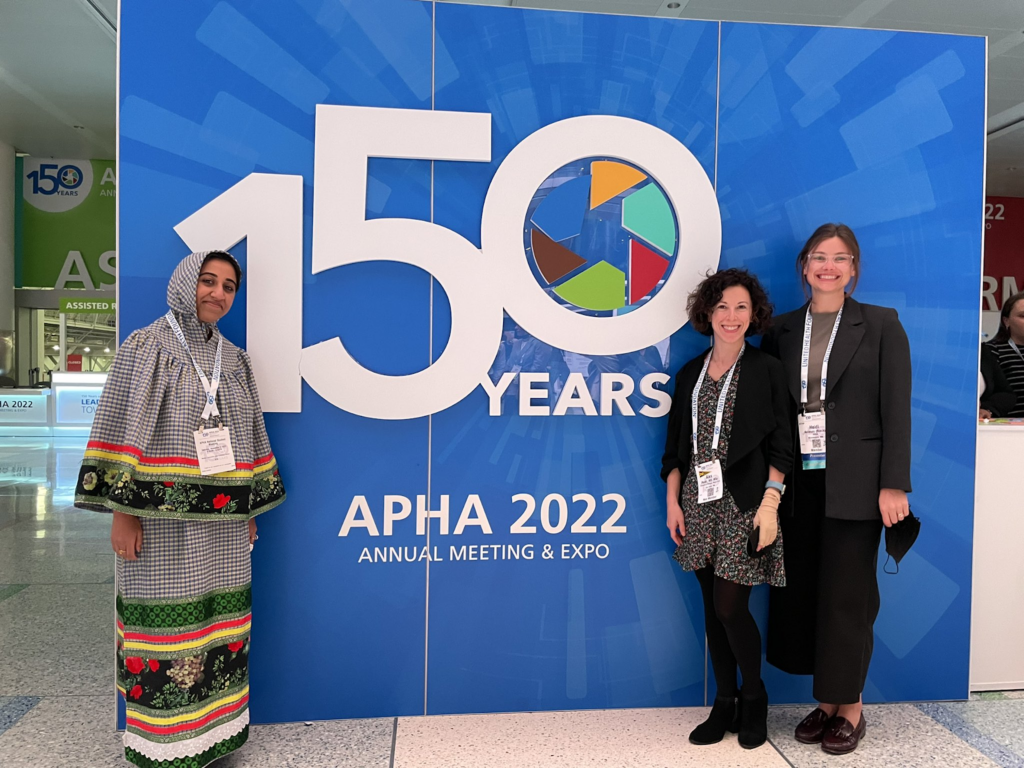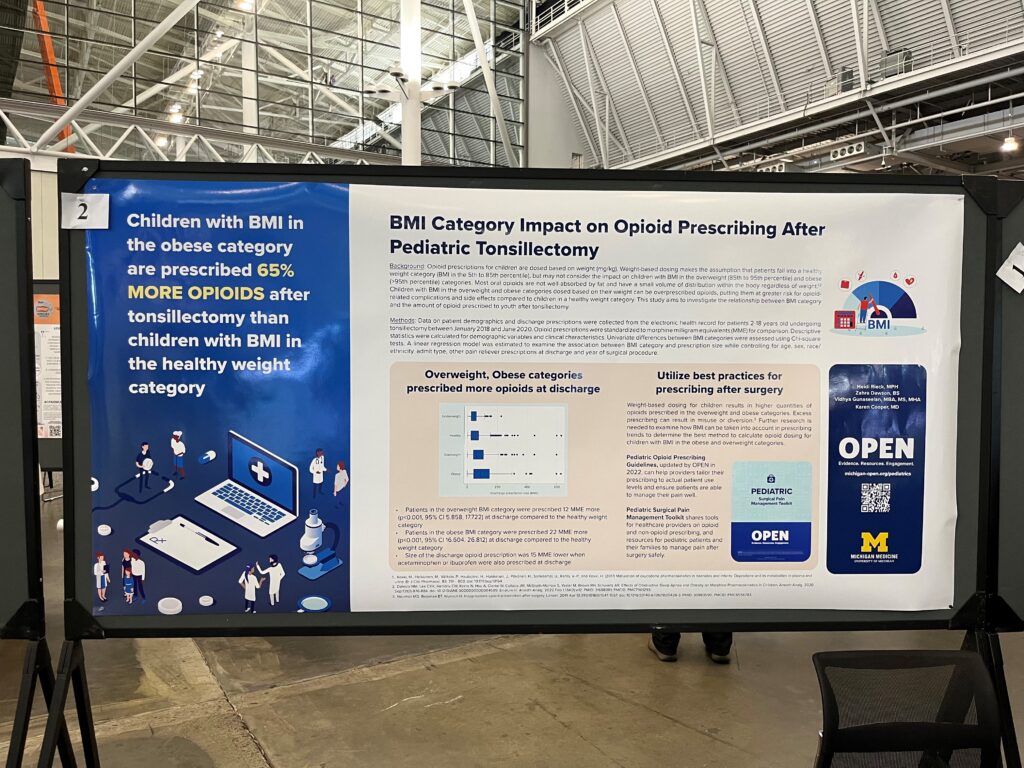OPEN team members Heidi Aslesen and Zahra Dawson attended the American Public Health Association (APHA) Annual Meeting in Boston from November 6th through November 9th to present research on the intersection of pediatric opioid prescribing, BMI and the impact on children.
The APHA Annual Meeting is a yearly public health conference that celebrates the vast variety of public health research happening across the country. The conference includes panel discussions, small oral sessions, vendors and poster presentations on varying topics. This year, nearly 13,000 people were in attendance.
Zahra Dawson recounted how being in this space and feeling all of the excitement in the air being surrounded by other public health practitioners made her want to take in as much information as possible. “Something that makes public health very special is that public health is everything, so many things fall under this category… It’s interesting seeing the wide variety and niche topics that people are researching… getting to highlight our work in this place is super important.”
Another takeaway Heidi Aslesen got from her time at the conference was the importance of public health workers being present in their communities year round, not just in times of need. “We in public health need to show up and make our presence known… we can do a better job at saying “we are with you, we support you.” We need to be there for the public consistently and not just show up during a crisis, so when an emergency happens, we are a friendly face with established trust.”

Featured left to right: Zahra Dawson, Dr. Alex Peahl, and Heidi Aslesen.
The research Aslesen and Dawson presented found that children with BMI in the obese category are prescribed 65% more opioids than children with BMI in the normal category, after controlling for other factors. Such excess prescribing can lead to increased risk of health complications for kids and misuse or diversion of those medications. Currently, opioid prescribing in kids weighing less than 50kg is based on weight, but recent research has found that this method of prescribing may be doing more harm than good. “Opioids are not necessarily stored in the fat, they are metabolized in a similar manner for kids who are overweight or at an ideal body weight for their age. Using weight-based prescribing is likely to result in an opioid prescription with a higher quantity and dose than what the child should receive for adequate pain management and can therefore pose a risk to their health,” Aslesen added.
Aslesen noted that this research is important to share now because not only are we in the middle of an opioid epidemic, but the number of children living with obesity is on an incline as well. “…Looking more into the opioid crisis and what we can do to prevent that pandemic from getting worse… seeing that obesity continues to rise in kids… presenting this research is another way we can potentially minimize the risk for kids.” Going forward, next steps include updating and creating new procedure-specific prescribing recommendations for pediatric patients so providers can prescribe accurately and safely. OPEN is currently developing additional pediatric recommendations to be released within the next few months.
The research presented at the conference created multiple discussion opportunities with attendees who wanted to learn more about this research or who didn’t know this was a problem. “Our research highlights that pediatric opioid dosing is an actual issue,” Dawson said. “Let’s get that conversation started and get people thinking about why this difference exists.”
For more information on our pediatrics research, click here.
